第34章 THE PRINCIPAL SUBJECTS OF EDUCATION [76](3)
I desire to speak with the utmost respect of that science--philology--of which grammar is a part and parcel; yet everybody knows that grammar, as it is usually learned at school, affords no scientific training. It is taught just as you would teach the rules of chess or draughts. On the other hand, if I am to understand by a literary education the study of the literatures of either ancient or modern nations--but especially those of antiquity, and especially that of ancient Greece; if this literature is studied, not merely from the point of view of philological science, and its practical application to the interpretation of texts, but as an exemplification of and commentary upon the principles of art; if you look upon the literature of a people as a chapter in the development of the human mind, if you work out this in a broad spirit, and with such collateral references to morals and politics, and physical geography, and the like as are needful to make you comprehend what the meaning of ancient literature and civilisation is,--then, assuredly, it affords a splendid and noble education. But I still think it is susceptible of improvement, and that no man will ever comprehend the real secret of the difference between the ancient world and our present time, unless he has learned to see the difference which the late development of physical science has made between the thought of this day and the thought of that, and he will never see that difference, unless he has some practical insight into some branches of physical science; and you must remember that a literary education such as that which I have just referred to, is out of the reach of those whose school life is cut short at sixteen or seventeen.
But, you will say, all this is fault-finding; let us hear what you have in the way of positive suggestion. Then I am bound to tell you that, if I could make a clean sweep of everything--I am very glad I cannot because I might, and probably should, make mistakes,--but if I could make a clean sweep of everything and start afresh, I should, in the first place, secure that training of the young in reading and writing, and in the habit of attention and observation, both to that which is told them, and that which they see, which everybody agrees to. But in addition to that, I should make it absolutely necessary for everybody, for a longer or shorter period, to learn to draw. Now, you may say, there are some people who cannot draw, however much they may be taught. I deny that in toto, because I never yet met with anybody who could not learn to write.
Writing is a form of drawing; therefore if you give the same attention and trouble to drawing as you do to writing, depend upon it, there is nobody who cannot be made to draw, more or less well.
Do not misapprehend me. I do not say for one moment you would make an artistic draughtsman. Artists are not made; they grow. You may improve the natural faculty in that direction, but you cannot make it; but you can teach simple drawing, and you will find it an implement of learning of extreme value. I do not think its value can be exaggerated, because it gives you the means of training the young in attention and accuracy, which are the two things in which all mankind are more deficient than in any other mental quality whatever. The whole of my life has been spent in trying to give my proper attention to things and to be accurate, and I have not succeeded as well as I could wish; and other people, I am afraid, are not much more fortunate. You cannot begin this habit too early, and I consider there is nothing of so great a value as the habit of drawing, to secure those two desirable ends.
Then we come to the subject-matter, whether scientific or aesthetic, of education, and I should naturally have no question at all about teaching the elements of physical science of the kind Ihave sketched, in a practical manner; but among scientific topics, using the word scientific in the broadest sense, I would also include the elements of the theory of morals and of that of political and social life, which, strangely enough, it never seems to occur to anybody to teach a child. I would have the history of our own country, and of all the influences which have been brought to bear upon it, with incidental geography, not as a mere chronicle of reigns and battles, but as a chapter in the development of the race, and the history of civilisation.